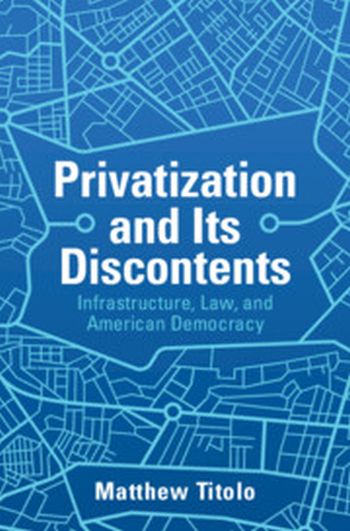
In Privatization and Its Discontents, Matthew Titolo situates the contemporary debate over infrastructure in the long history of public–private governance in the United States. Titolo begins with Adam Smith's arguments about public works and explores debates over internal improvements in the early republic, moving to the twentieth-century regulatory state and public-interest liberalism that created vast infrastructure programs. While Americans have always agreed that creation and oversight of 'infrastructure' is a proper public function, Titolo demonstrates that public–private governance has been a highly contested practice throughout American history. Public goods are typically provided with both government and private actors involved, resulting in an ideological battle over the proper scope of the government sphere and its relationship to private interests. The course of that debate reveals that 'public' and 'private' have no inherent or natural content. These concepts are instead necessarily political and must be set through socially negotiated compromise.